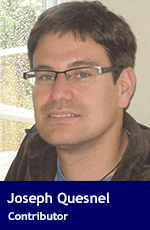 Zinc is an important ingredient in disinfectants such as soap, so it plays an important role in preventing the spread of COVID-19.
Zinc is an important ingredient in disinfectants such as soap, so it plays an important role in preventing the spread of COVID-19.
As we know, the twin pillars of COVID-19 prevention are social distancing and washing your hands properly.
So mining this bluish-white metal is important to Canada’s strategy for addressing the pandemic at home.
Beyond soap, zinc is used to galvanize steel to protect it from corrosion. And zinc is an essential element for our health, as over 200 enzymes in the human body require zinc to function.
Canada is an important zinc producer and at one point was the world’s largest zinc provider. Zinc mines operate in British Columbia, Saskatchewan, Manitoba, Ontario, Quebec, Northwest Territories, Yukon and Nunavut. You could almost ask where zinc is not produced in Canada.
However, China is now easily the world’s largest producer of zinc, with almost 34 per cent of total global production. In 2019, China produced about 4.3 million tonnes of zinc.
By 2018, Canada had fallen to ninth place in global production, with about 2.2 per cent of world output.
The world’s largest zinc production site is an open pit zinc-lead-silver mine in Alaska, which accounts for 4.2 per cent of global production alone.
Total global reserves – as recently as February 2020 – are estimated at 250 million tonnes.
However, experts say that with the current heavy consumption of zinc, reserves will likely last for just 17 years.
Australia has the largest zinc reserves, at around 68 million tonnes. Other significant reserves are in China, Peru and Mexico.
Canada maintains bilateral diplomatic and trade relations with China. But the mounting evidence that China wasn’t transparent about the roots of the COVID-19 pandemic, the world may turn on them.
New Conservative Party of Canada Leader Erin O’Toole has been aggressive and bellicose in his rhetoric against China since the pandemic began. And the Liberal government has begun to push away from China.
If past behaviour is any indication and especially in its economic relations with the United States, the world knows that China is capable of retaliating when other countries don’t follow its lead. In 2010, China restricted exports of rare earth elements to Japan over a diplomatic dispute, leading to a sharp increase in prices. That caused turmoil in global markets, given the importance of these metals to many consumer goods.
In this case, Canada was also an important producer of rare earth elements but was relegated to being an exporter of unrefined ore to China.
Although world trading ought to operated on a price-based system of proper market signals, China often manipulates global markets for its strategic interests. Other countries also do this but China is large enough to do it with great effect.
For decades, the Chinese government has bought up production and supply chains around the world in these rare earth elements used in cellphones and electric cars, as well as advanced military hardware, in order to serve their strategic interests.
Although zinc is not as strategically important as rare earth metals, Canada should shore up its domestic supply to avoid suffering as the result of any trade sanctions from China or other large players.
Just as the domestic supply of personal protective equipment (PPE) became an issue of great concern in Canada as the pandemic ramped up, ensuring our country has a supply of metal that is used in disinfectants such as soap would be wise.
Canada could also work with Australia and other allies with dependable zinc reserves to ensure the global system has a reliable zinc supply based on proper market- and price-based considerations, not the threat of one nation manipulating global markets.
Canada needs a national mining strategy that takes this into consideration.
Joseph Quesnel is a research associate with the Frontier Centre for Public Policy.
Joseph is a Troy Media Thought Leader. Why aren’t you?
The views, opinions and positions expressed by columnists and contributors are the author’s alone. They do not inherently or expressly reflect the views, opinions and/or positions of our publication.


